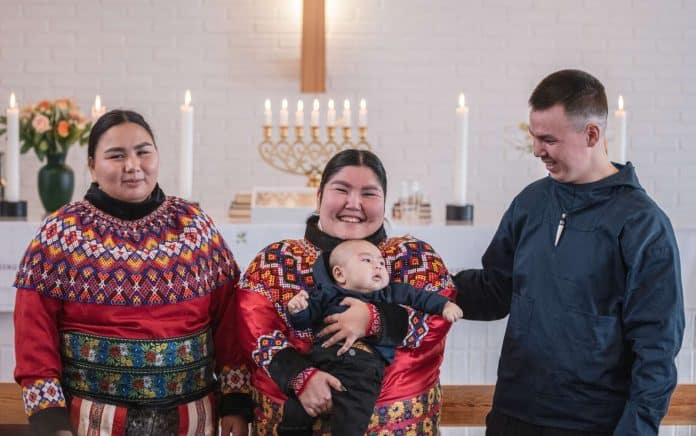Aki-Matilda Høegh-Dam was elected to the Danish parliament as a representative of Greenland in 2019 when she was only 22 years old. The Inuit, one of the world´s Indigenous Peoples, make up over 90% of the 60,000 strong population of Greenland.
The island, as an autonomous territory in the Kingdom of Denmark, elects two representatives to the Danish Parliament, in addition to its own parliament and self-rule government.
The theme of this year’s International Day of the World´s Indigenous Peoples, celebrated on 9 August, is Indigenous youth as agents of change for self-determination.
The Greenland Inuit have achieved a degree of self-determination in their relationship with Denmark, of which it has been a part for more than three centuries. In the early seventies the independence movement in Greenland really emerged – led by those who were young at the time.

Current youth more aware of decolonization
Aki-Matilda Høegh-Dam, an Inuit member of the Danish parliament, pointed out in an interview that while younger generations, like hers, might be more aware of decolonization processes and advocate for Indigenous rights, both young and old generations have played roles in shaping these relations.
“For instance, in the seventies, young people fought for self-rule and self-government, breaking societal norms. These seventies kids are now in their sixties. However, today’s younger generation continues to address issues from a modern perspective, advocating for a more equitable partnership and working towards reducing the impacts of colonization on Greenland’s Indigenous population.”

While Greenland enjoys a wide-ranging home-rule it still relies on Danish financial support. Høegh-Dam wants to take a step further and declare independence.
“I believe that true progress involves becoming an independent sovereign state. This would allow Greenland to have more direct trade relationships with the world, reducing the dependency on Denmark and enabling greater control over its economic structures and decision-making processes.”
Speaking in Greenlandic in Danish parliament

Recently she attracted a lot of attention when she gave a speech in Greenlandic in the Danish parliament. She said that this speech was a significant step in highlighting the systemic inequalities and challenges faced by Greenlandic people.
“My decision to speak Greenlandic aimed to expose these disparities and foster understanding about the importance of addressing them, bringing attention to the realities of your constituents and their struggles within the broader Danish context.”
Inuit in Greenland participate in the UN Permanent Forum for the World’s Indigenous Peoples. Høegh-Dam views the Indigenous identity of the Inuit in Greenland as a vital component of their strength and cultural heritage.
“I emphasize the need for Greenlanders to take pride in their Indigenous identity, which encompasses traditions, language, tattoos, and food. Overcoming historical stigmatization and embracing this identity not only empowers the Greenlandic population but also enables the integration of these traditions into modern society, creating a unique cultural synergy that draws on the strengths of both historical knowledge and contemporary progress.”

Photo: Silje Bergum Kinsten/norden.org
The challenge of climate change
Like so many of the world´s Indigenous peoples, climate change is a challenge for Greenlanders. 90% of Greenland, which with its 2.2 million square kilometers is the world´s biggest island, is covered by ice.
“Climate change has significant and complex effects on the lives of Greenlanders. Traditional hunting methods are impacted, and environmental challenges such as ice melting and tsunamis pose risks to communities.”
If the glaciers retreat, however, economic opportunities might appear that are sorely needed to remove Greenland´s dependence on Denmark and possibly pave the way for independence.

“While climate change can present opportunities for economic activities like mining due to glacier retreat, my stance leans toward responsible decision-making. I advocate for thorough environmental impact assessments and the establishment of clear laws and boundaries to ensure the safety of the environment and people, while also considering potential economic benefits.”
Recently Aki-Matilda Høegh-Dam ran for the chairmanship of her Siumut (Social Democratic Party), losing to the incumbent but beating a former prime minister to the second place. It wouldn´t come as a surprise if a lot more is to come from the 26-year old.




